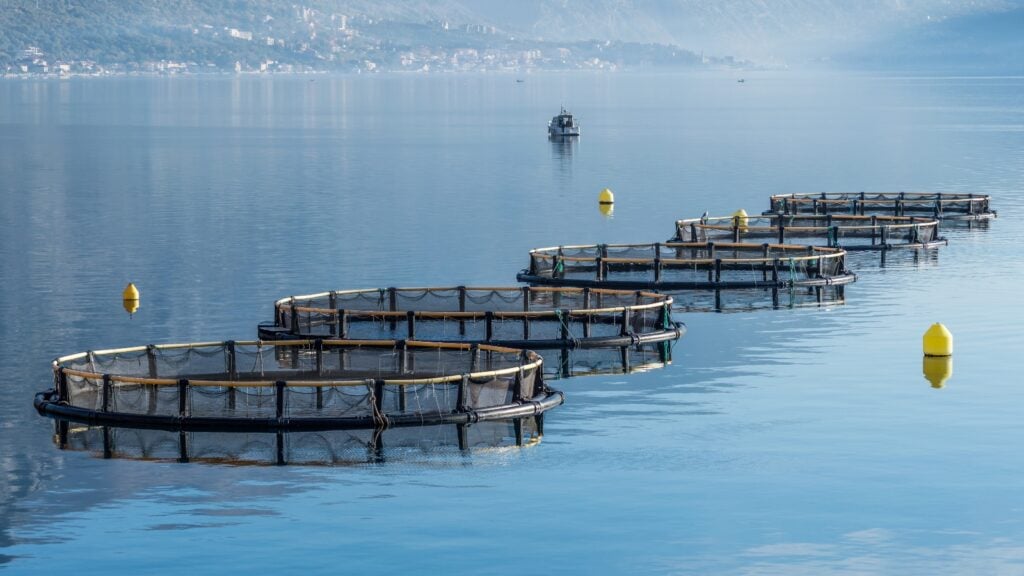Animal rights organization Viva! just launched a new campaign aimed at raising awareness of lice infestations within the salmon and trout industry. It’s an effort to protect farmed fish from tremendous suffering, the charity says, in terms of scale damage, infection, disease, and reduced growth.
For the most part, wild salmon and trout are saltwater–dwellers. They live in the ocean for the majority of their lives, until it’s time to reproduce. Then they head upstream to freshwater, dig nests with their tails, and lay their eggs in the river beds.
Besides increased safety, there is another benefit to this migration. During this time, salmon also dislodge any parasites (known as sea lice) that have attached themselves to their skin.
But there is a large population of salmon and trout that aren’t able to carry out their natural behaviors at all. Millions of fish live in sea pens where they are kept before they are killed for human consumption.
In the UK, Scotland is a fish farming hub, home to more than 200 farms, a significant number of which are infested with lice.
‘A hyper-intensive method of producing food’
Viva!’s campaign is not the first time alarm bells have been raised over the way fish are farmed. In 2019, the BBC’s Panorama series ran an expose of the conditions on salmon farms.
In a corresponding article, wildlife photographer Corin Smith, who has researched salmon farming, compared fish farms to battery farms on land.
“Open-cage salmon farming is a hyper-intensive method of producing food,” Smith told the BBC. “There has been overwhelming public consensus that battery chicken farms are essentially unacceptable. Salmon farming’s never been through the process of public scrutiny yet.”
And these farms don’t just harm the fish they contain. According to Viva!, this explosion of sea lice also impacts the wider ocean. Parasites attach themselves to passing wild fish, threatening their survival too.
It notes that just one salmon increases “the sea lice burden on migrating juvenile salmonoids by as much as 73 times above normal levels.”
In an attempt to keep the lice problem under control, fish farmers often use harsh chemicals or machine-based technologies that pump fish through freshwater jets or heated baths. Both are linked to causing “high levels of anxiety, pain, and death” to the fish, says Viva!, with around 112,000 dying each year due to the machines.
Instead of eating farmed fish, Viva! is encouraging consumers to try one of the many vegan fish alternatives on the market now.






